February 13, 2020
It was one of dozens of interviews given by Fort McMurray fire Chief Darby Allen as wildfires raged over the spring and summer of 2016 and the northern Alberta city was evacuated.
A 24-hour news channel hummed like white noise as Liz, five months pregnant at the time, puttered around her kitchen.
Before she saw his face, Liz heard Allen's voice and began to cry.
"It just brought me back to a time when I was very young and naive and destroyed."
Allen led the evacuation of the city of nearly 90,000, making headlines as a hero for weeks, months, even years to come.

Even early on in the crisis, Allen had become a respected national figure — known as a calm, compassionate and courageous leader.
To Liz, he was the man who'd tormented her for years.
Back in the early 2000s, she was an employee at the Calgary Fire Department and he was a much older senior officer who sometimes supervised her directly.
A statement of claim filed by Liz in 2018 alleges Allen routinely made sexually explicit comments to her in the workplace. It also describes instances where he allegedly groped her bottom and breasts, pressed his erection against her, and secretly read her private emails in a fit of jealous rage.
Allen has admitted to "inappropriate" verbal and written communication with Liz, which he apologized for, but denies any physical contact.
The lawsuit does not currently have a pending court date.
Liz complained to Allen, and eventually to other fire department brass, but for a long time, she says, he'd seemed untouchable, even managing to get a promotion after being caught watching hours of porn at work.
In 2007, Allen was eventually fired for sexually harassing Liz — only to be hired as assistant deputy chief by the Fort McMurray Fire Department in 2009, and later promoted to chief.
A decade later, in 2017, Allen retired from the FMFD. He now tours the country getting paid to deliver motivational speeches on leading with integrity, and instructs in university business courses.
In 2018, triggered by Allen's hero status, Liz filed a lawsuit against him and the City of Calgary, alleging the city failed to provide her with a safe work environment free from abuse and harassment.
"I look at that face, and you see a hero and I see a predator."
City knew of issues but did nothing, suit alleges
"Liz" is a pseudonym CBC News is using for the 38-year-old because she alleges she was sexually assaulted, and she and her lawyer are in the process of applying for a publication ban with the lawsuit.
The lawsuit alleges the city was aware Allen had a history of sexually inappropriate behaviour, including watching pornography at work, yet failed to take action.

Details of Allen's alleged behaviour that come from the statement of claim have not been proven in court, but CBC News has corroborated many of the claims based on documents obtained through freedom of information requests and interviews with three of Allen's former colleagues.
The dozens of documents include emails, a City of Calgary lawyer's handwritten notes, internal fire department communications and notes made by former fire chief Bruce Burrell.
Although Allen’s name is redacted in many of the documents, two unredacted emails written by City of Calgary lawyer Kim Nutz confirm Allen as being the employee under investigation — and ultimately fired — for sexually harassing Liz.
'I have strived to become a better person'
In his statement of defence to Liz's lawsuit, Allen denies all of the allegations and argues the case should be dismissed because the Court of Queen's Bench of Alberta does not have jurisdiction to hear it and/or because the suit is an abuse of process.
The statement of defence also claims Liz accepted compensation from the city based on her allegations, "which settled the matter." It says Liz signed a document releasing all city employees and, by implication, Allen, from any further action. Liz says she did not sign any such document and never received any kind of compensation, financial or otherwise.
When CBC News asked Allen's lawyer to provide evidence of the alleged document, he said he couldn't.
Allen, now 61, would not sit down for an interview but did provide CBC News with a written statement about his behaviour at the Calgary Fire Department.
"During that time I engaged in verbal and written communications which were inappropriate. I am embarrassed by my behaviour, I apologize, it was wrong, and I am sorry," he wrote, pointing out the events happened more than a decade ago.
"That phase of my life is not consistent with my values. I have made personal improvements since that time, and I have strived to become a better person."
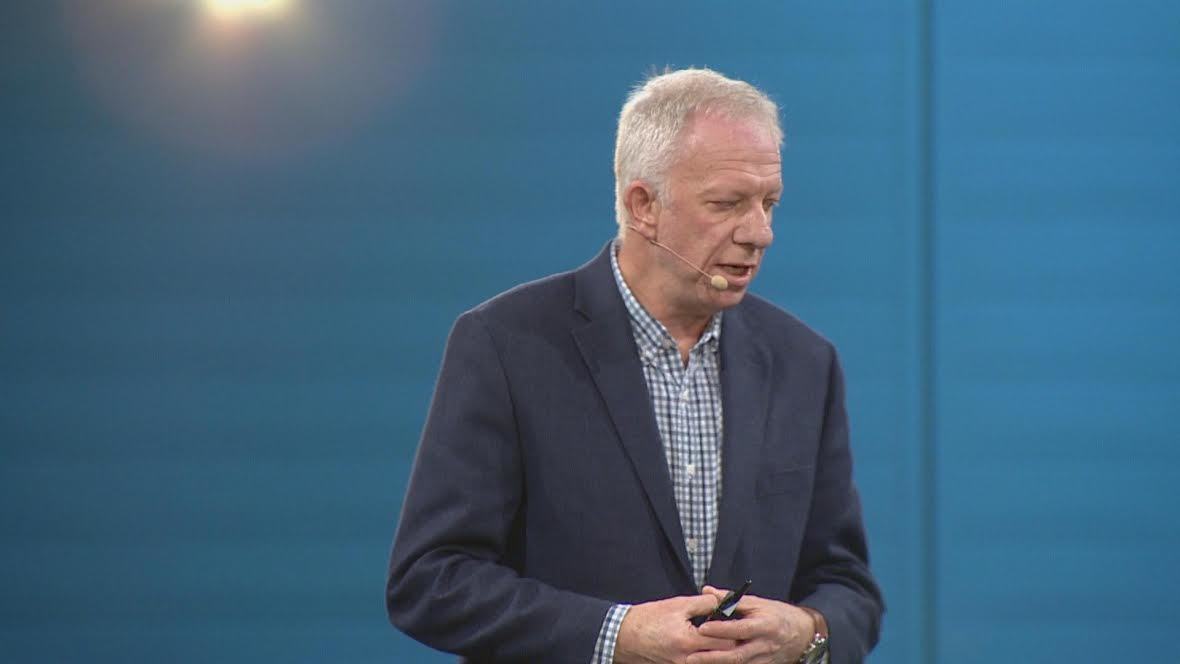
Explicit comments, sexual touching alleged
In her statement of claim, Liz says the harassment began in 2002, when she was hired in the Calgary Fire Department's training division where Allen worked.
She was a 20-year-old secretary and Allen was a training officer 25 years her senior. He befriended her, and almost from the beginning, Liz says, would steer their conversations toward sex.
Liz says Allen routinely asked about her sex life, made sexual advances, and talked to her about his sexual predilections and experiences. She says she felt trapped.
"I liked going to work but I dreaded my interactions with him," she said. "If I refused to go for lunch, I'd be reminded of his position and that he was my boss."
By March 2005, Allen was promoted to assistant deputy chief of operations.
Within a few months, Liz was promoted to secretary for the deputy chief of operations. It meant she'd have significant contact with Allen, who would become her direct supervisor when his boss, Deputy Chief Gerald Fox, was away.
The statement of claim alleges Allen began to ramp up the harassment in 2006, but Liz was afraid to push back or report him up the chain of command for fear of losing her job.
According to the lawsuit, Allen would book meeting rooms where he would bring Liz and then describe in "explicit detail" sexual encounters he'd had, including with other fire department employees.
Liz says he routinely discussed his sexual past, and would make comments about her breasts and legs.
And Allen's alleged harassment wasn't just verbal. At least twice, according to the statement of claim, Allen came into her cubicle with an erection that he pointed out to her, and on one occasion, while standing at a filing cabinet, pressed his erection into her back. She also claims he touched her bottom repeatedly, and on one occasion touched her breasts.
Allen would also fly into a jealous rage when she interacted with male co-workers, according to the lawsuit and emails between the two.
After Liz and a firefighter colleague had been emailing back and forth, making plans to go out for a beer, Allen entered her office while she was out and read the emails. Liz says Allen became livid at the thought of his underling going on a date with someone else.
"We talk about why you're not really interested in fukk wad, but then you spend half an hour talking about him. Why would I find that enjoyable???" Allen wrote in an email to Liz.
In a followup message sent on Sept. 27, 2006, Allen apologized after admitting to reading Liz's emails.
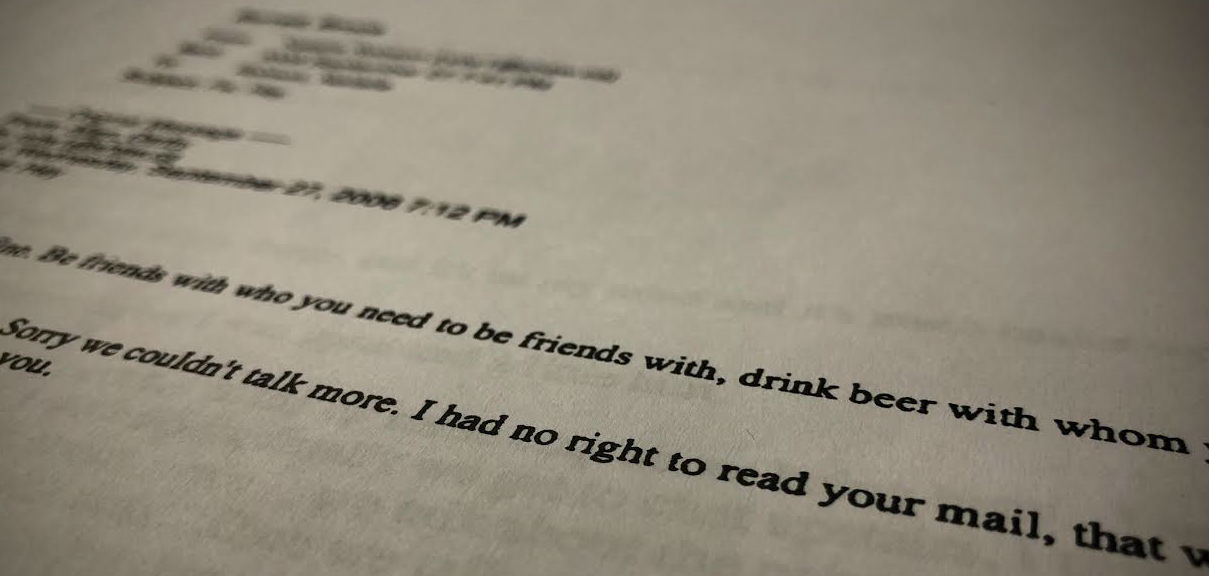
"Drink beer with whom you choose. You're an adult and who the hell am I? … I had no right to read your mail. That was juvenile and nasty of me."
Fearing she'd lose her job or be treated badly at work by Allen, she cancelled the date.
Liz tried to fight back
Even though Liz feared career repercussions, she says she tried repeatedly to put a stop to Allen's harassment.
According to a statement she provided to the chief in 2007, after Allen had groped her breast at her cubicle, she confronted him. She says Allen claimed he'd done it once before and she hadn't protested. But Liz didn't remember it happening previously and told him not to do it again, her statement says.
In April 2005, she had lunch with him and asked him to keep their relationship "in the friend zone," according to her 2007 statement. Liz says Allen expressed to her that he found it difficult being just friends, feeling there was something more between them.
By January 2006, she was so fed up she wrote a resignation letter to Deputy Chief Gerald Fox, in part because of stresses in her home life but also because she was at her wit's end at work.
Although she did not mention Allen by name, or the fact that she was being harassed at work, she did write: "I don’t feel I am strong enough to deal with what I know will be mentally and emotionally crippling if I continue my employment here."
Fox convinced Liz to stay.
On Jan. 2, 2007, Liz was fed up once again. She told Allen he was acting inappropriately toward her. According to her written statement to the chief, Liz told Allen she "needed to cut out the things in her life that made her feel like a sexual object."
Liz says Allen responded by telling her that friends could talk about sex.
She laid down the law and told Allen she didn't want to talk about sex with him anymore, she says.
In a Jan. 4, 2007, email to a friend and colleague, Liz wrote she "lost it on DA” for treating her "like a sexual piece of meat."
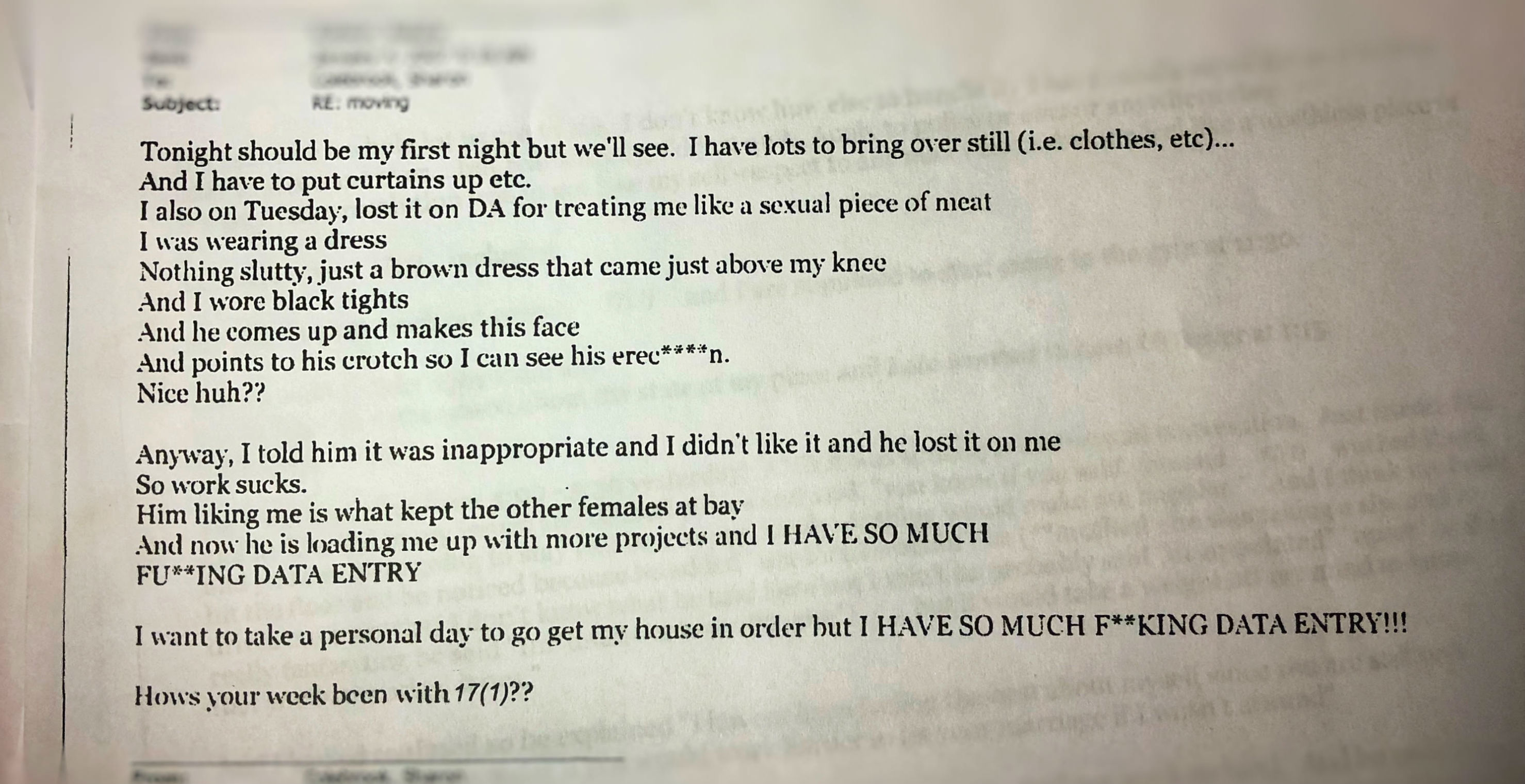
Liz had worn a dress to work that day.
"He comes up and makes this face and points to his crotch so I can see his erec***n. Nice huh? Anyway, I told him it was inappropriate and I didn't like it and he lost it on me," she wrote.
Then, Liz says, Allen retaliated in a more subtle way.
"So work sucks … Now he is loading up on other projects and I HAVE SO MUCH FU**ING DATA ENTRY."
When Liz's friend expresses shock in her reply email, Liz writes back: "DA has done a lot worse to me."
Others threaten to quit if Allen is promoted
On the same day Liz vented to her coworker, two CFD employees (a woman and a man) had gone to Chief Bruce Burrell to express concern after the announcement that Allen was being promoted from assistant deputy chief to deputy chief, according to the statement of claim and the chief's notes from 2007.
The employees told Burrell "of Allen’s ongoing harassment and battery of [Liz]," reads the statement of claim.
Burrell, who had joined the fire department only two years earlier after moving from Nova Scotia, began looking into the complaints against Allen.
On Jan. 6, 2007, Burrell met with a third fire department member who told him that Allen had been disciplined years earlier for watching pornography on duty.
Around that same time, Burrell called retired battalion chief Nick Maley at home as part of the harassment investigation.
After the call, Maley prepared a written statement for the chief. In it, he told Burrell he'd sat on the disciplinary panel of CFD employees responsible for making recommendations after Allen was caught viewing pornography.
Maley wrote that a forensic examination of Allen's computer done by corporate security turned up "a list of over 100 porn sites Darby had visited at work."
All this happened before Allen was accused of scaling up the harassment of Liz and before he was promoted to assistant deputy chief.
In an interview with CBC News, Maley said the committee made a number of recommendations for possible disciplinary actions.
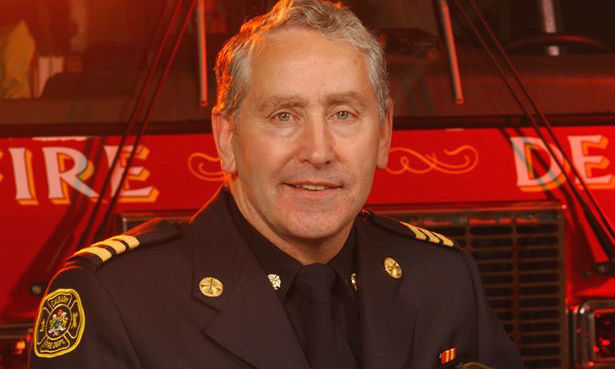
Maley said the panel of four was split on whether Allen should be fired or simply suspended. The City of Calgary confirms dismissal is one potential outcome for employees who are caught looking at pornography at work.
In the end, Maley says, Allen was suspended without pay for two weeks, and a letter was put in his personnel file.
In a written statement, Allen said he viewed images at work that were "privately hosted on Yahoo member pages," but on devices that didn't belong to him.
"The images were inappropriate in the context of viewing them using my employer’s equipment," he wrote.
"I admitted to the conduct, and requested no union defence. I apologized profusely then, and again apologize now. My employer determined the severity of the conduct, I served a suspension, and understood the matter to be closed."
Maley says at the very least, according to his understanding of CFD rules at the time, disciplinary actions should have prevented him from being promoted for at least a year.
Within two months of Allen being disciplined, he was promoted to assistant deputy chief by Chief Wayne Morris, who has since died.
Maley says he went to Morris.
"I asked, 'How?' It's wrong," said Maley. "I never got an answer."
Instead, Maley says, that's when Allen "became untouchable."
A history of 'blackballed' whistleblowers
On Jan. 6, 2007, Morris's replacement, Chief Burrell, was hearing about Allen’s pornography case for the first time from another fire department member.
That employee, whose name is redacted from the chief's notes, confirmed to Burrell that he or she had knowledge of Allen sexually harassing Liz.
"[Allen] knows [Liz] is terrified. [Liz] has put him on notice several times and the behaviours have continued," reads the chief's notes.
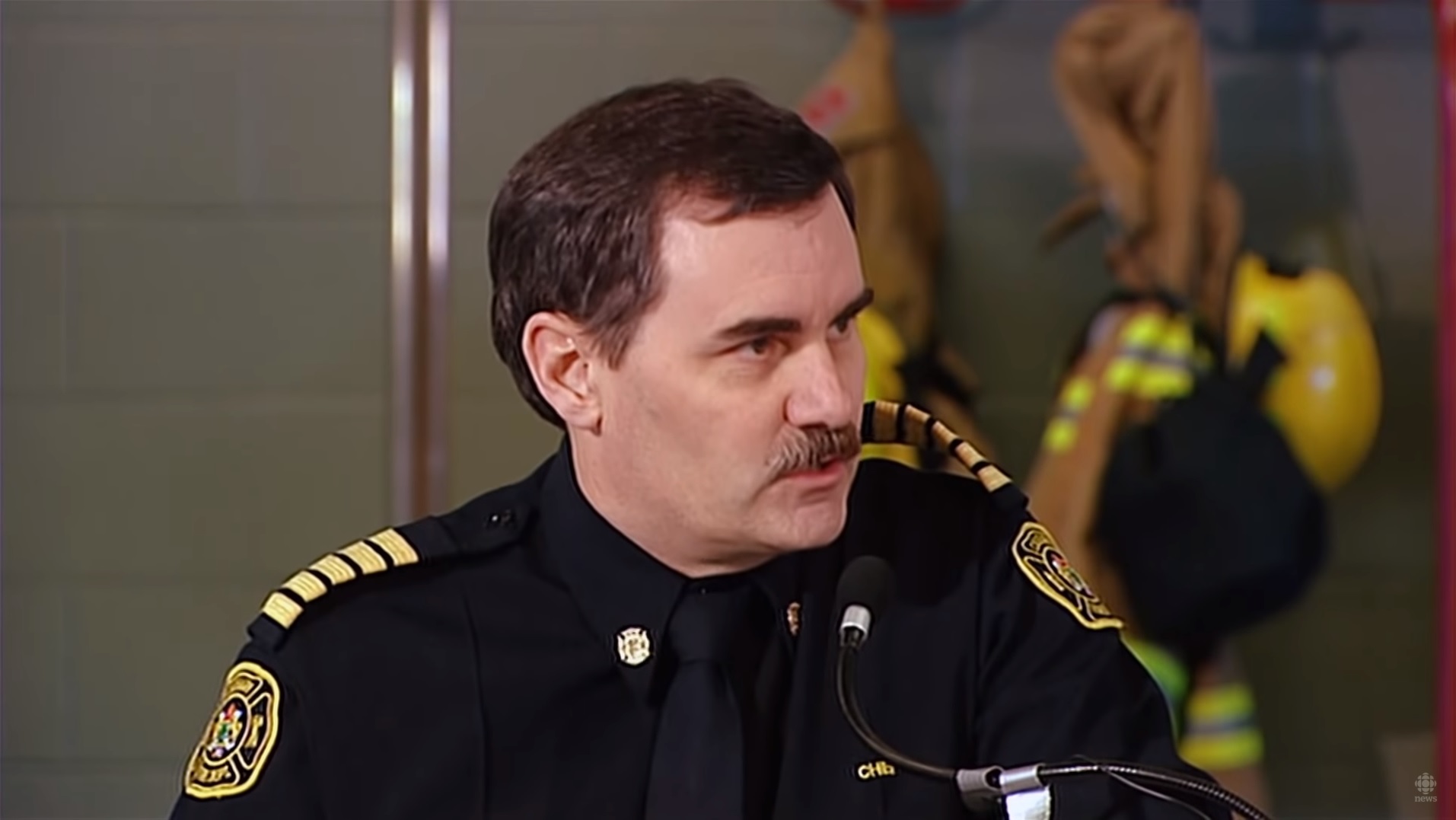
The employee told Burrell that those who worked in the training unit with Liz and Allen believed management was aware of the senior firefighter's bad behaviour but chose to ignore it.
During the meeting between Burrell and the fire department member, the chief was told previous harassment investigations at CFD had ended badly for whistleblowers.
"Whistleblowers [were] blackballed and not protected by the organization … verified that this has in fact occurred at least twice in the past," reads the chief's notes.
A surprise grilling in a van
According to his notes, Burrell directed Liz be questioned by the lawyer, Nutz, and Deputy Chief Gord Sweetnam — the fire department's chief operations co-ordinator and Burrell's right-hand man.
On Jan. 9, 2007, she was asked to join Nutz and Sweetnam in a CFD van.
Liz says she was taken off-guard by the questioning and didn't want to make waves.
Liz "was very upset and insisted that nothing of the sort was going on," the chief wrote in his notes after receiving a debrief from Sweetnam and Nutz. "Doesn't want this to go forward — feels like she is being used as a pawn."
Sweetnam confirmed to CBC News he was in the van and questioned Liz.
Sweetnam and his wife, Colleen Stewart, who used to work in human resources for the fire department, also confirmed to CBC News that Liz disclosed the harassment to them in an informal way at their home in December 2006 or January 2007.
Stewart says as soon as that happened, Sweetnam went to the chief, which is one of the reasons the investigation was launched.
Burrell initially concluded that a breach of policy had taken place "on both sides" with Liz and Allen because — even though they weren't involved sexually — they discussed intimate, personal matters and sometimes met outside of work hours.
However, the next day, Liz called Burrell and said she was prepared to tell the chief everything.
She told him she'd been harassed by Allen for 4½ years, provided a statement and handed over emails between her and Allen.
'This is really hard on me'
After Burrell confronted Allen later that day, he noted the assistant deputy chief denied everything.
Two days later, according to the chief's notes, Burrell met with Allen and suspended him with pay for the duration of an internal investigation into the allegations of harassment.
Allen handed over his keys, phones, card pass and laptop.
"This is really hard on me," he told the chief, according to Burrell's notes.
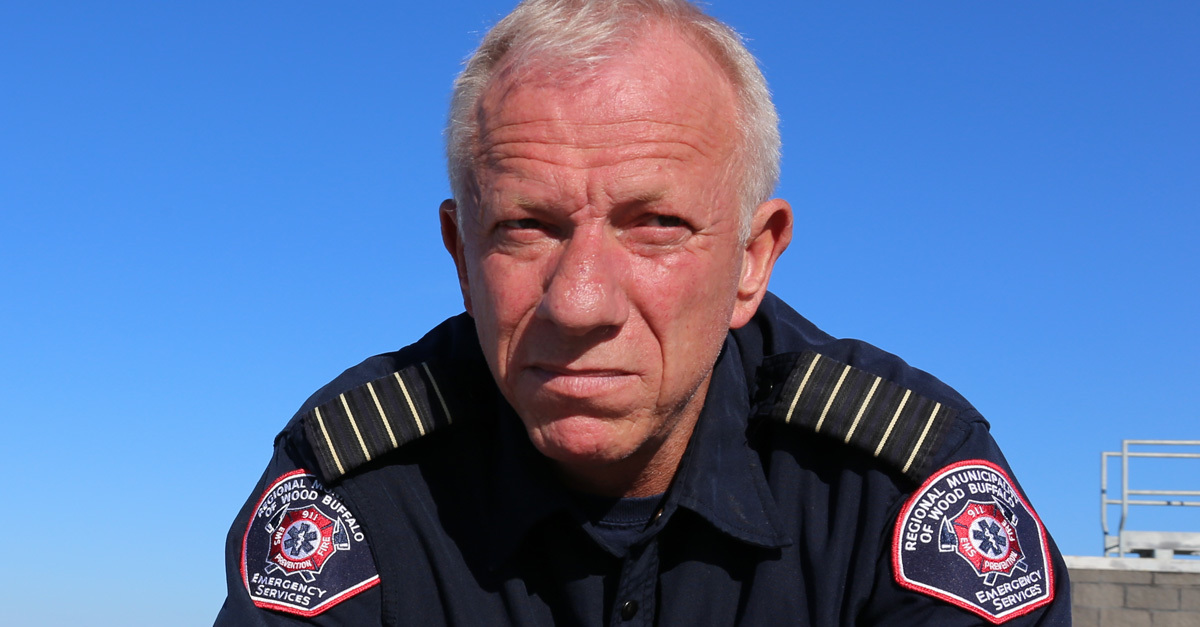
A Jan. 17 email from Nutz to Burrell confirms other CFD employees had corroborated concerns that Allen had been sexually harassing Liz "for some time."
"Please be advised that the investigation into the allegations against Assistant Deputy Chief Allen has been completed and Chief Burrell has determined that there was enough evidence to support a dismissal," Nutz emailed to Liz, cc'ing the chief and a deputy chief.
Emails sent to CFD employees on Feb. 28 about Allen never revealed he was fired or why he was leaving the department.
"Be advised as of 1700 hours today [Allen] is no longer an employee of CFD. Any media inquiries will be handled by the PIO. This is an internal personnel issue of the CFD and no details will be discussed," reads an email from Burrell.
Allen left CFD quietly and the media strategy never needed to be enacted. Soon, he'd have a new job, one where he'd reach the top of his profession.
New Alberta law gives Liz hope
In May 2017, the Alberta legislature passed Bill 2, which removed the time limits — previously set at two years — on civil claims relating to sexual or domestic misconduct, including at the workplace.
Employers can be found liable for inappropriate conduct that occurs on the job.
After learning of these changes, coupled with feeling tormented that Allen was back in her life via the news and his new-found hero status, Liz decided to try to hold him accountable.
Liz says she suffers from post-traumatic stress disorder, depression, anxiety and social phobia.
"I dedicated my life to my career," said Liz, who now works for a different city department. "I loved what I did, I found self-worth in what I did, and he took advantage of that. He took advantage of the fact that he was in charge of my career, so it made me feel … weak and manipulated and just somewhat desperate."
Did Fort McMurray know about Allen's firing?
CBC News asked whether the Fort McMurray Fire Department was aware of Allen's history at the Calgary Fire Department when he was hired and what the northern Alberta city's practice is for checking references.
A spokesperson for the regional municipality of Wood Buffalo declined to comment.
"It's not our practice to comment on any matters related to past or current employees of the Regional Municipality of Wood Buffalo," Megan Langpap wrote in an email.
The City of Calgary and the Calgary Fire Department declined to make anyone available for an interview but did issue a written statement to the CBC.
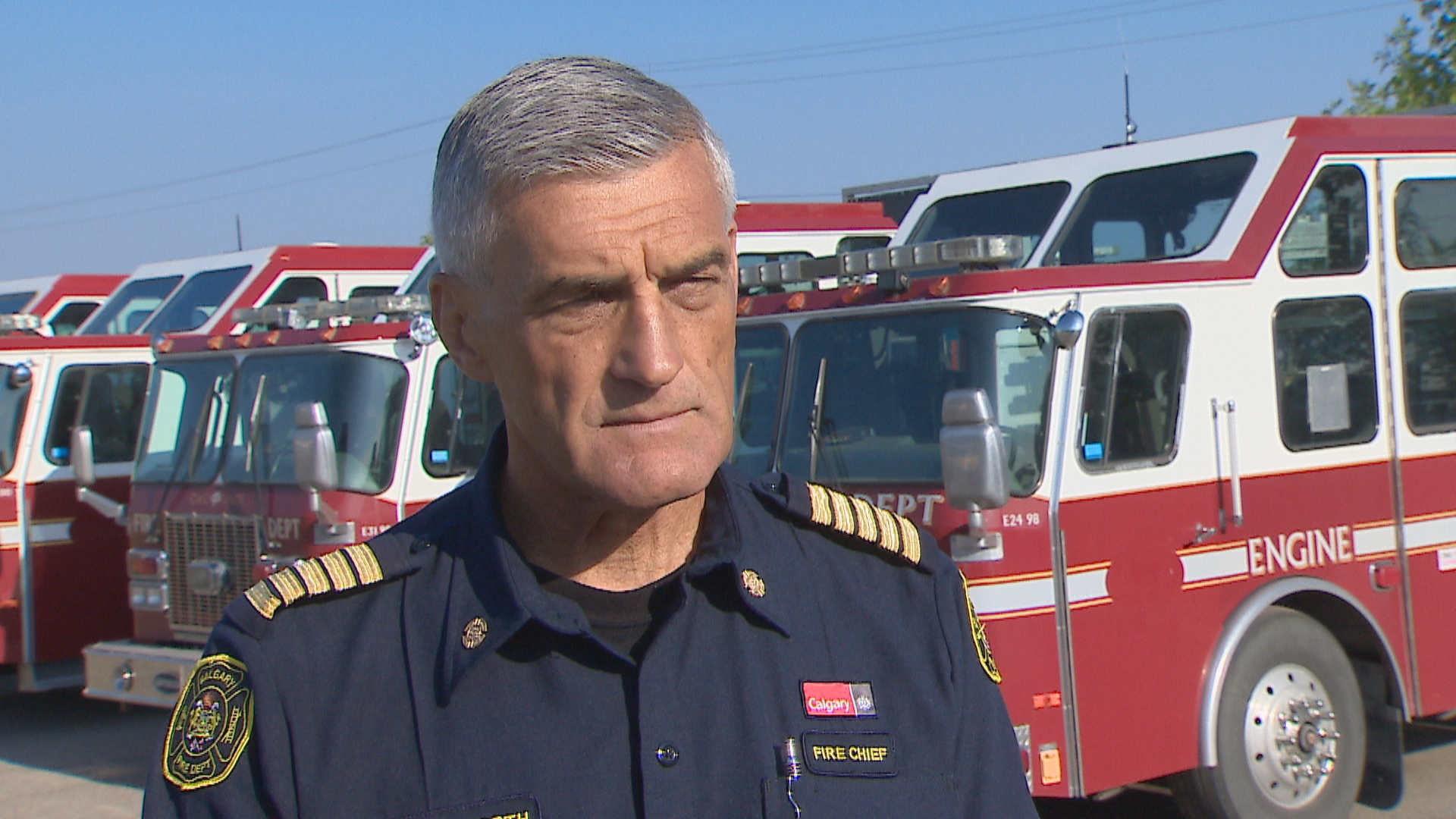
"Over the past number of years, Calgary Fire has made concerted efforts to further build a respectful and inclusive workplace," Calgary Fire Chief Steve Dongworth said in the statement.
"We know this can be challenging work for any large organization, and Calgary Fire remains committed to this process."
While the city says it can't comment on cases before the courts or disciplinary actions and cases within the fire department, it "takes allegations of inappropriate behaviour very seriously and harassment or abuse is not tolerated."
The city also says it provides employees various avenues to voice concerns and complaints, including an independent whistleblower program and human resource partners within city departments.
'I do feel used'
Colleen Stewart says Liz showed "unbelievable courage" throughout the investigation, and called Allen's termination "absolutely the right outcome."
Liz says she wishes she’d been strong enough to formally report Allen in the beginning.
She says she was horrified but not surprised to see a high-ranking officer in one fire department could be fired for such behaviour, then hired and promoted even higher at another.
She also questions the motives of her co-workers who knew she was being harassed but only reported Allen when he was up for promotion.
"I think about the fact that people knew what he was; they knew details and they laughed about it behind closed doors."
